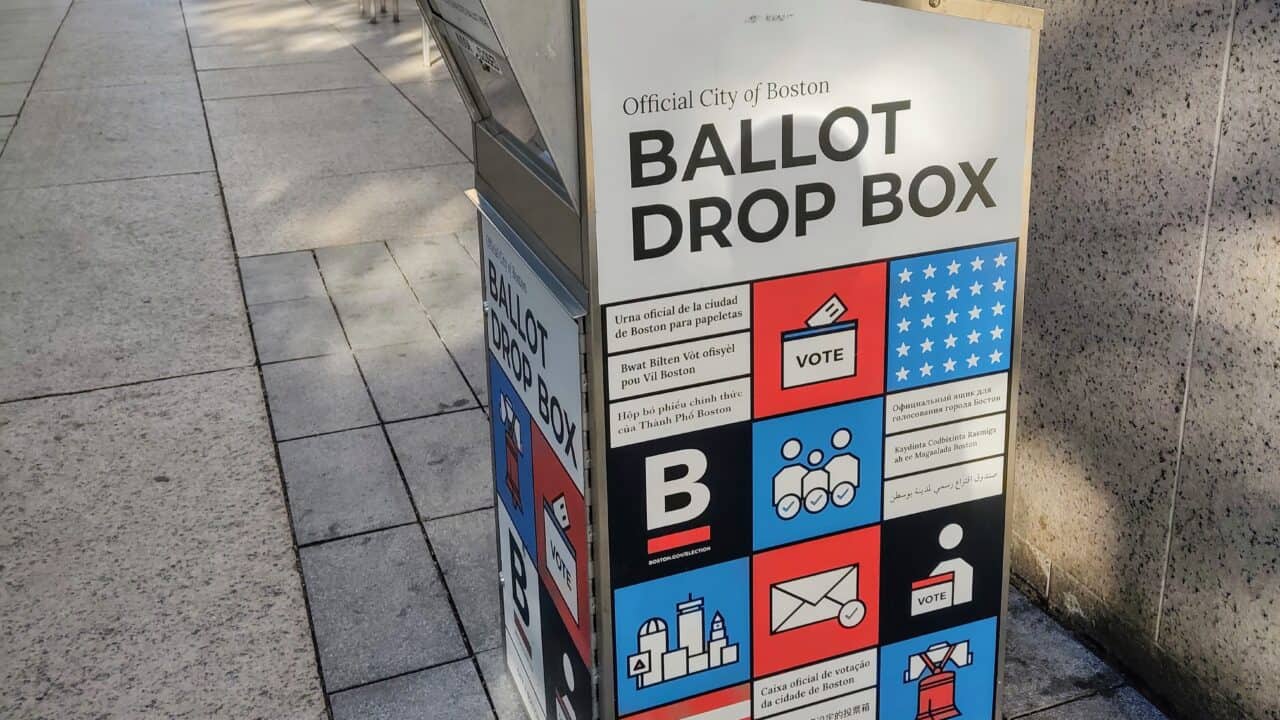 Ballot Drop Box Boston by Whoisjohngalt is licensed under CC BY-SA 4.0.
Ballot Drop Box Boston by Whoisjohngalt is licensed under CC BY-SA 4.0.
In the 2022 midterms, two blue state electorates varied in judgment over similar initiatives to raise income taxes on high earners. The contradictory verdicts may at least be partially attributable to endorsements and seven figure spending from teachers associations, but carry policy implications nonetheless.
On November 8th, California voters discarded Proposition 30, a 1.75% tax increase on personal income exceeding $2 million to aid in the state’s mandated 2035 transition to electric vehicles. The ballot measure, which only managed to secure 40.83% of the vote, would have dedicated revenue to zero-emission vehicle subsidies and infrastructure. However, upon closer inspection, Proposition 30 was clearly nothing more than a self-interested attempt by Lyft to secure billions of dollars in taxpayer-funded subsidies to cover the cost of its transition to compliance with the electric vehicle mandate.
Although proponents touted the initiative as a necessary step toward achieving the state’s ambitious climate agenda, the legislation failed to gain support from two key influential actors: the California Teachers Association and Governor Gavin Newsom. “Prop 30 is fiscally irresponsible and puts the profits of a single corporation ahead of the welfare of the entire state,” argued Newsom.
It is no secret that Golden State income taxes are astronomically high. With a nation-leading top rate of 13.3%, residents and businesses are leaving in droves for states with far more forgiving rates. However, the defeat of Proposition 30 is a step in the right direction to mitigating the adverse effects of excessive income taxes on the state’s questionable long-term economic stability.
In contrast to California’s rejection of Proposition 30, 52% of Massachusetts voters approved Question One. The legislatively proposed constitutional amendment, nicknamed the “millionaires’ tax,” will add a 4% annual tax to the existing 5% flat-tax rate on income exceeding $1 million. While the California Teachers Association spent millions fighting Proposition 30, the Massachusetts Teachers Association spared no expense in advocating for Question One. Without their backing, it is unlikely the narrowly passed proposal carries a majority vote.
The important thing to note about Question One is that although the legislation targets top earners, it also eliminates the constitutionally protected flat tax, which was the Bay State tax code’s most attractive feature. The same flat-tax rate that protected top earners also protected the lower and middle classes. Now that Democrats have broken through to amending the state constitution, the political path to tax raises on average families becomes much more achievable.
With the help of $16 million in teachers union spending, Massachusetts voters finally approved a progressive income tax after rejecting the previous five attempts. But Massachusetts is an outlier in this respect, not a trend setter. In the past two years five new flat tax state have been added, whereas Massachusetts is the only state to move in the opposite direction.
“Governor-Elect Maura Healey made several promises to cut taxes, and we will hold her to her word. Question 1, which raises taxes 80% on the top earners, passed narrowly with her express support,” Paul Craney, spokesman for Massachusetts Fiscal Alliance, said in a post-election statement. “Over the next four years, we look forward to supporting her measures to counteract the negative consequences this will have on the Commonwealth, including the plummeting of MA’s ranking by the nonpartisan Tax Foundation to 4th worst business climate in the country and a return to our former reputation as ‘Taxachusetts,’”
There are many lessons to be learned and take-aways from the 2022 midterms. Overwhelming rejection of a tax hike on the rich to fund EVs in California, along with the approval of an income tax cut in blue Colorado, where voters put Democrats in total control of state government, demonstrates that, even if Demcorats had a much better night than anticipated, progressive policies did not receive a vote of confidence in the midterm elections.

